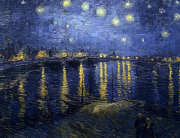The reality is that there is a fundamental misunderstanding of what these two equal and powerful forces offer to the human experience. Yes, equal—and therein lies the source of humanity’s dilemma between the two.
There is a deep-seated belief that divine will supercedes personal choice, therefore, creating an intrinsic disempowerment of self.
The belief that there is some divine dictator that commands humanity against its will is a sad misunderstanding of the truth. This belief promotes that God is right and the individual is wrong. Yet, humanity has been told that they have freewill. The conflict created can cause some to see freewill as a curse rather than a blessing.
The reality is you always have choice, and that is just that. Choice is not to decide between right and wrong or good and bad. This thinking implies polarity rather than participation.
So how does divine will fit into the picture? Divine will only makes sense in relationship to personal choice–when it is not seen as a dictate but rather a discernment, a guide on which to make personal choices. Unfettered by ego consciousness, divine will sees clearly the best path to be taken.
Divine will is not an opposing force but an internal source of wisdom and guidance, a faithful steward of the best options in your life for your highest good.
Let us use the example of Jesus in the garden: after an agonizing night of internal conflict, he submits declaring, “Thy will be done.” Though used over the centuries as an example of submission, the point was missed that he was not responding to a divine decree from which he could not flee but, rather, a choice based upon what was revealed by divine will as his highest good.
Submission to divine will is an active, not a passive, state. In actuality, divine will is never in conflict with personal choice until fear and confusion dim the light of understanding that divine will provides.
Divine will is not an external force but that internal source of guidance. It is yourself whispering in your own ear the path best taken. When seen in this light, divine will becomes a trusted advisor, rather than a domineering parent—and divine will becomes the gift that makes freewill worth having.







Leave A Comment